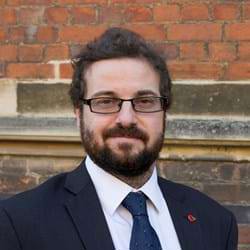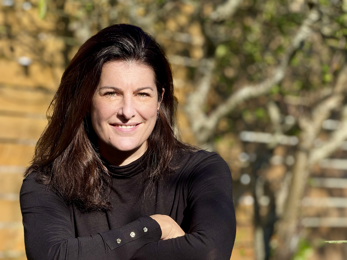The development of the Begbroke Innovation District is envisioned as a ‘Living Lab’, providing the opportunity to model sustainable practices from energy use to community engagement, and biodiversity to building design.
The Begbroke Innovation District (BID), planned around the current Begbroke Science Park, owned by the University of Oxford, will bring new research and community facilities to the north of Oxford. The district will accommodate not just scientists and entrepreneurs but a whole new community, complete with homes, schools and parks. It is designed to foster innovation and enterprise and provide a model of sustainable living.
Two Engineering academics have been profiled in an Oxford University case study about the Innovation District.
Championing carbon reduction
Professor Barbara Rossi's research group, based at the current Begbroke site, is dedicated to enhancing the sustainability and resilience of the construction sector through a more efficient use of materials. Her group investigates a spectrum of construction materials to identify those which produce lower carbon impacts over their lifecycle, including use of finite resources, energy consumption during manufacture, transportation and site activities, and end-of-life disposal.
Professor Rossi leads the Sustainable Metal Structures Laboratory at Begbroke. She used her expertise in lifecycle assessment and embodied carbon mitigation to advise Begbroke scheme engineers on reducing embedded carbon in different railway bridge design options for the site.
In future research, Rossi and her team plan to use the site as a test bed for innovative research on the impact of construction materials on the environment and the potential for more sustainable construction materials. ‘
"Despite current claims by the sector, getting to ‘True Zero Carbon’ in the built environment will be incredibly challenging. Given that carbon emissions from operational energy use represent a declining proportion of whole-life carbon emissions, it is crucial to limit upfront ‘embodied’ carbon at the build stage, as we are attempting to do at BID. We will be testing innovative ideas and products and monitoring their long-term environmental impacts over the next decades."
Professor Barbara Rossi
Sustainable energy

The BID site is also being used by the University for teaching and learning, which in turn is influencing site development. David Wallom, Professor of Informatics and course director of Oxford’s MSc in Energy Systems, explains: "The Master Plan has provided an excellent teaching opportunity for the 2022-23 student cohort, who worked with engineering partner Buro Happold and Oxford University Development (the entity developing the site), on an evaluation of the Plan’s energy strategy. The evaluation looked at issues such as balancing demand on a mixed-use site, electric vehicle charging, and the complex networks needed to heat and cool homes and infrastructure."
"BID’s vision is for its energy systems to go beyond current government standards and achieve ‘Net Zero’ energy emissions by 2035, in line with the University’s own environmental sustainability targets. The site offers the chance to collect data going forward – to assess whether planned interventions and approaches achieve intended goals. The students presented their findings in a whole-day workshop and early feedback from OUD indicates that it is helping them to evolve their strategy."
Professor David Wallom
Main image: Plomp/Hawkins Brown
A new era of Medicine - using AI to make a positive difference
Biomedical


